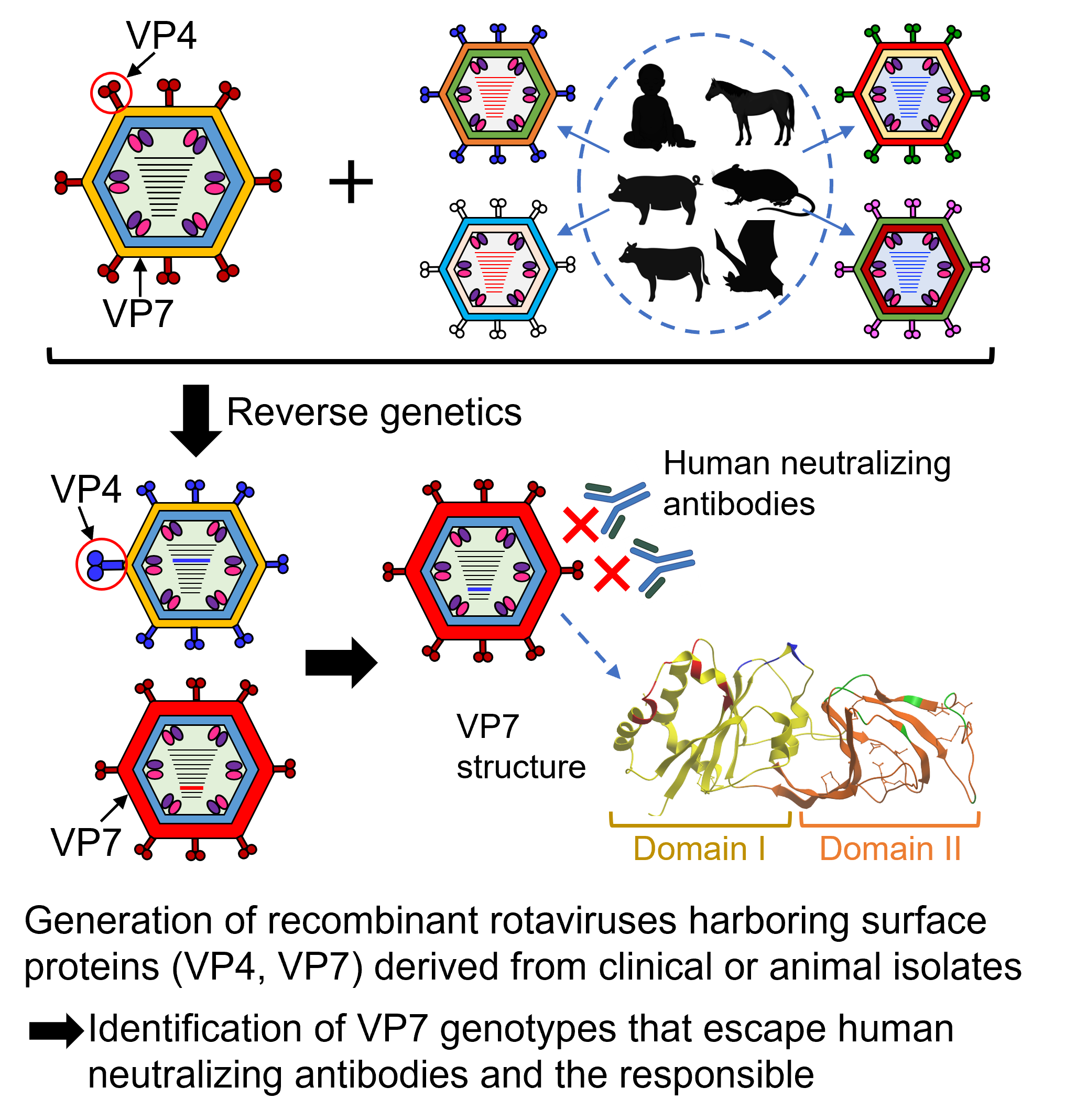Rotavirus VP4/VP7 monoreassortants reveal genotypes less sensitive to vaccine- or infection-induced antibodies (Kobayashi Lab, in mBio)
Rotavirus, the leading cause of severe acute gastroenteritis in infants, is responsible for approximately 128,500 infant deaths globally each year. The virus's surface proteins are highly diverse, comprising approximately 100 genotypes. This diversity affects susceptibility to neutralizing antibodies and the efficacy of vaccines. Here, we found that certain genotypes are highly resistant to serum neutralizing antibodies induced by vaccination and natural infections. Furthermore, we identified a specific region in the viral outer capsid protein that plays a significant role in determining susceptibility to neutralization. These findings may be important for predicting outbreak-causing strains and for developing more effective vaccines, ultimately contributing to prevention of future outbreaks and improving global infant health.
This article was published in mBio on May 30th, 2025.
Title: “A rotavirus VP4 or VP7 monoreassortant panel identifies genotypes that are less susceptible to neutralization by systemic antibodies induced by vaccination or natural infection”
Authors: Tomohiro Kotaki, Yuta Kanai, Kristen M. Ogden, Megumi Onishi, Kattareeya Kumthip, Pattara Khamrin, Patcharaporn Boonyos, Pornkamol Phoosangwalthong, Phakapun Singchai, Tipsuda Luechakham, Shohei Minami, Zelin Chen, Katsuhisa Hirai, Ratana Tacharoenmuang, Hiroto Mizushima, Hiroshi Ushijima, Niwat Maneekarn, Takeshi Kobayashi
Links
- Home
- Achievement
- Research Activities
- Rotavirus VP4/VP7 monoreassortants reveal genotypes less sensitive to vaccine- or infection-induced antibodies (Kobayashi Lab, in mBio)








